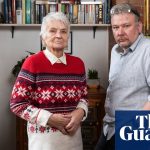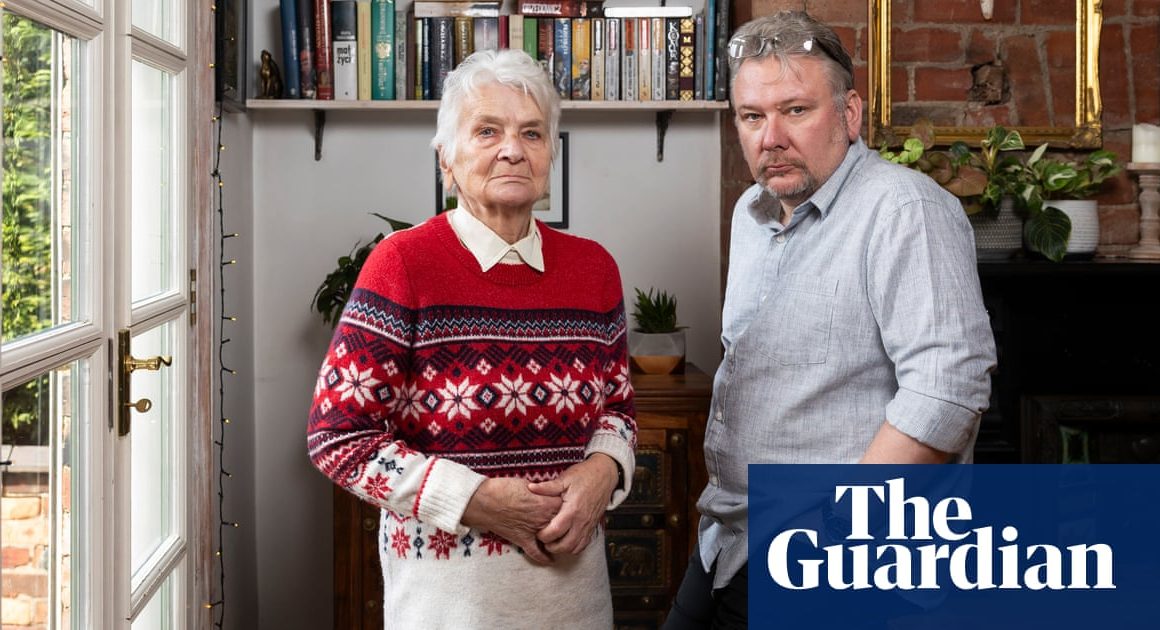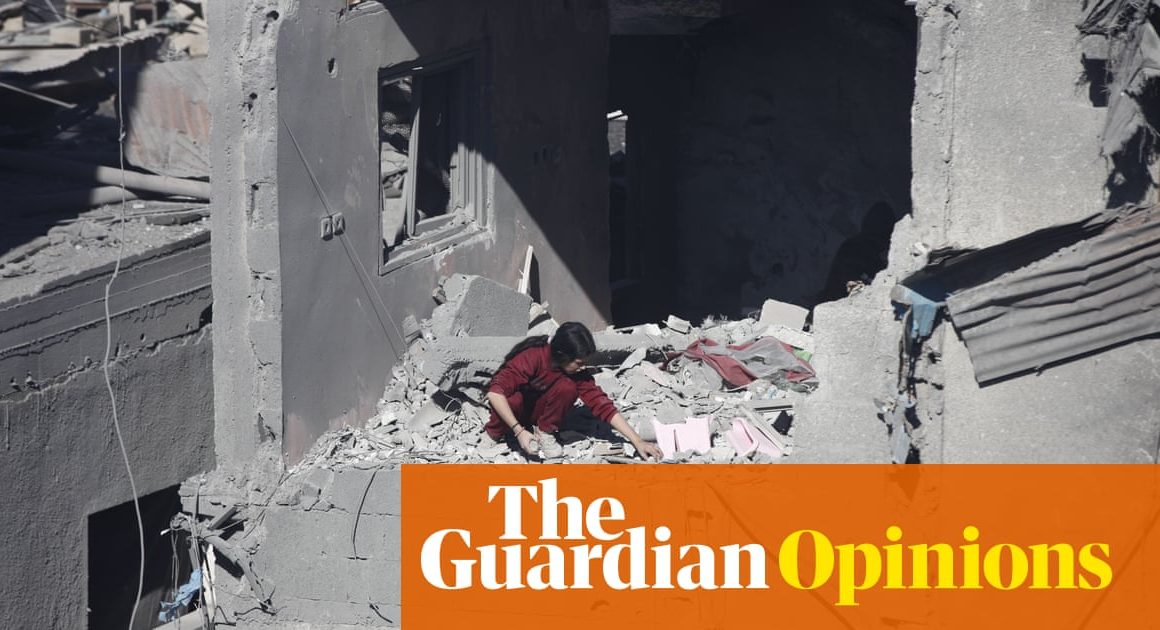Starmer condemns Badenoch for abandoning cross-party consensus on climate crisis policy
Keir Starmer’s statement to MPs about the G20 and Cop29 summits largely summarised announcments made while he was at those events. Kemi Badenoch, the new Conservative leader, responded. Normally exchanges like this are relatively tame, because the main parties often broadly agree on foreign policy issues, but Badenoch was very critical of Starmer’s foreign policy positions, particularly on climate, and Starmer condemned her for breaking what had been a cross-party consensus on reducing emissions.
Referring to Cop29, Badenoch said:
Cop has not yet concluded, so we do not know what the final impact on the UK will be. But we do know the prime minister’s rush to a further cut in our emissions [a reference to this announcement] is yet another example of politicians putting short term publicity above long term planning.
When will he publish the plans to achieve this new target?
Where this government does the right thing, we will back it. Yet, where it puts politics before people and press releases before practicality, we will hold them to account.
It is time for politicians to tell the truth, and it is time the prime minister provided some substance to back this costly rhetoric.
Badenoch pointed out that, by attending the G20 summit in Brazil, Starmer was out of London for the farmers’ protests. And she ended:
The prime minister’s foreign policy is a pick and mix of empty platitudes, unilateral commitments that he could have announced at home, and dangerous precedents – rushing to give away the Chagos islands and paying for the privilege, an ill-judged suspension of export licences to Israel, damaging our defence and security industry and failing to set out a roadmap for spending 2.5% GDP on defence in a world that is becoming yet more dangerous.
I hope the prime minister is up to the very real and serious challenges posed to our security and prosperity.
In response, Starmer said that Badenoch’s decision to abandon the cross-party consensus on reducing carbon emissions and the drive to net zero “shows just how far the party opposite has fallen”. He said:
On Cop … I have to say, it is a shame that what used to be a cross-party issue not so many years ago … when Cop was in Scotland, there was a real unity across the house about the importance of tackling one of those central issues of our time.
I think the fact that she has now taken the position she has of attacking the very idea of setting targets shows just how far the party opposite has fallen.
On an issue like this, I was proud that under some of her predecessors we had that unity. It’s a shame it’s now been lost because of the position adopted by the opposition.
Badenoch describes herself as a “net zero sceptic” and in a recent interview she suggested that an adaption strategy might be a better solution to the climate crisis than just focusing on cutting carbon emissions.
Key events
John Healey, the defence secretary, has been giving evidence to the Commons defence committee this morning. But he would confirm that Ukraine has started firing Storm Shadow missiles provided by Britain at Russia. Asked to confirm these reports, Healey said:
I won’t be drawn on the operational details of the conflict. It risks both operational security and in the end the only one that benefits from such a public debate is President Putin.
Healey also said this was a “serious moment” for Ukraine and he said battle lines were now “less stable than at any time since the early days of the full scale Russian invasion”.
The Guardian columnist Martin Kettle has sent me this anecdote, which he describes as his favourite memory of the late John Prescott. Martin says:
I was at a Labour conference in Blackpool in the 90s and I bumped into him back stage in the press room and he said: “Is your fella Steve Bell here?” I said, yes, Steve was. “Well can you introduce me? He always draws me as Tony’s dog, and I’m not a fuckin’ dog.” Steve was sitting quite nearby, so I nervously made the introductions as the two big guys met up. Within a few seconds, Prescott’s threatening manner vanished and he and Steve were in stitches about some joke or other. Then, as Prescott was leaving he turned and squared up to Steve and said. “No dogs, OK?”
Of course it made absolutely no difference whatever, and Steve kept on drawing him as a dog.
Hancock tells Covid inquiry interference from No 10 caused ‘incredible difficulties’ with testing programme
Matt Hancock has told how he “ruffled some feathers” protecting the NHS from political “interference” during the Covid pandemic, PA Media reports.
Giving evidence to the Covid inquiry, the former health secretary said part of his role was to “shield” the NHS from “people being difficult in Number 10”. He said:
Within the running of the NHS, we were protected in a way because of the independence of the NHS.
And therefore the people being difficult for Number 10, part of my job was to provide a shield from that.
And I know that I ruffled some feathers in doing so, but my job was, ironically, also to protect the NHS from some of that.
Hancock told the inquiry that interference from Number 10 caused “incredible difficulties” with regards to testing people for Covid.
Hancock is giving evidence as part of the inquiry’s third module investigation, focusing on the impact of the pandemic on the NHS.
As PA reports, Hancock was asked by inquiry counsel Jacqueline Carey about his witness statements which suggested “inappropriate political interference from Number 10”, and whether that interference applied to the scope of these hearings. He replied:
Well, of course some of it did. For instance, the biggest interference that caused difficulties was within testing, where some of the political appointees in Number 10 caused incredible difficulties.
Hancock was almost certainly referring to Dominic Cummings, Boris Johnson’s chief adviser at the times. Earlier hearings have proviced copious evidence showing that relations between Hancock and Cummings were dire.
Earlier today Hancock also claimed that former first minister of Scotland, Nicola Sturgeon, caused “all sorts of difficulties” as the pandemic unfolded. (See 10.26am.)
Starmer tells MPs he condemns jailing of pro-democracy activists in Hong Kong
Keir Starmer said that he condemned the jailing of 45 pro-democracy activists in Hong Kong by the Chinese authorities during his statement in the Commons.
He was challenged to use the word condemn after Conservative MPs suggested that he was reluctant to sound too critical of China on this issue.
In her response to Starmer’s opening statement, Kemi Badenoch said that the activists were sentenced the day after Starmer held talks with Xi Jinping, the Chinese president, at the G20 summit. She said she had not heard him condemn the sentences at the time, and she challenged him so do so “unequivocally”.
In response, Starmer said “Minister West” (Catherine West, the minister for the Indo-Pacific” made a statement on this and he said he was happy “to repeat and affirm her position”.
Later Iain Duncan-Smith, one of the most China-criticial Tories and a former party leader, asked Starmer to be more explicit. Starmer replied:
I said I condemned it a moment ago, and I’m happy to say so. I just did and I will say it again.
It is important that where we have these significant differences, particularly on issues of human rights, that we have frank, open discussions about them and that is why these matters have been raised repeatedly.
Here are two more tribute to John Prescott.
From the former Labour leader Neil Kinnock
John Prescott was an intriguing mixture of ferocity and charm who attracted affection, respect and, sometimes, outrage.
He was truly a political innovator in policies ranging from integrated transport to combating climate change and regional democratic and economic development to European co-operation.
Vitally, he was also a very practical MP and minister who continually sought the best way to ‘get things done’ whether that meant bringing divergent people together or insisting on details of implementation. This central invaluable quality made him an essential figure in 10 years as deputy prime minister.
From John Major, the former Conservative prime minister
[Prescott] was an essential part of Labour’s electoral success in the 1990s and – as deputy prime minister – continued to say what he thought in unmistakable terms. He never lost sight of the causes that first motivated him into politics, and remained a passionate advocate for all he believed – even if that meant the odd tussle with colleagues along the way.
Although a political opponent, I much admired him as a man who never betrayed his core instincts. He was, in essence, a deep down genuine politician. The public saw that – and respected him for it.
In his response to Kemi Badenoch in the Commons (see 11.27am), Keir Starmer also criticised her suggestion that he should not have attended the G20 in Brazil. Badenoch did not quite say he should have stayed at home, but she said being at the G20 was probably “a lot easier” than being in London when ‘“hard-working farmers were protesting outside the Downing Street gates at his cruel family farm tax”.
Referring to her comments, Starmer said:
[Badenoch] references me being in Rio when the farmers were protested.
G20 is the leading economies of the world, getting together to discuss questions of common issues on the economy and on security.
If her implication is that the UK should not be there at leader level, that we should join Putin in avoiding that meeting, if that’s the position of her party, then she should say so.
Starmer condemns Badenoch for abandoning cross-party consensus on climate crisis policy
Keir Starmer’s statement to MPs about the G20 and Cop29 summits largely summarised announcments made while he was at those events. Kemi Badenoch, the new Conservative leader, responded. Normally exchanges like this are relatively tame, because the main parties often broadly agree on foreign policy issues, but Badenoch was very critical of Starmer’s foreign policy positions, particularly on climate, and Starmer condemned her for breaking what had been a cross-party consensus on reducing emissions.
Referring to Cop29, Badenoch said:
Cop has not yet concluded, so we do not know what the final impact on the UK will be. But we do know the prime minister’s rush to a further cut in our emissions [a reference to this announcement] is yet another example of politicians putting short term publicity above long term planning.
When will he publish the plans to achieve this new target?
Where this government does the right thing, we will back it. Yet, where it puts politics before people and press releases before practicality, we will hold them to account.
It is time for politicians to tell the truth, and it is time the prime minister provided some substance to back this costly rhetoric.
Badenoch pointed out that, by attending the G20 summit in Brazil, Starmer was out of London for the farmers’ protests. And she ended:
The prime minister’s foreign policy is a pick and mix of empty platitudes, unilateral commitments that he could have announced at home, and dangerous precedents – rushing to give away the Chagos islands and paying for the privilege, an ill-judged suspension of export licences to Israel, damaging our defence and security industry and failing to set out a roadmap for spending 2.5% GDP on defence in a world that is becoming yet more dangerous.
I hope the prime minister is up to the very real and serious challenges posed to our security and prosperity.
In response, Starmer said that Badenoch’s decision to abandon the cross-party consensus on reducing carbon emissions and the drive to net zero “shows just how far the party opposite has fallen”. He said:
On Cop … I have to say, it is a shame that what used to be a cross-party issue not so many years ago … when Cop was in Scotland, there was a real unity across the house about the importance of tackling one of those central issues of our time.
I think the fact that she has now taken the position she has of attacking the very idea of setting targets shows just how far the party opposite has fallen.
On an issue like this, I was proud that under some of her predecessors we had that unity. It’s a shame it’s now been lost because of the position adopted by the opposition.
Badenoch describes herself as a “net zero sceptic” and in a recent interview she suggested that an adaption strategy might be a better solution to the climate crisis than just focusing on cutting carbon emissions.
Watch live feed of Matt Hancock giving evidence to the Covid inquiry
The former health secretary is answering questions on the NHS response to the pandemic
Keir Starmer is in the Commons where he has made a statement to MPs on the two summits he has attended recently, the G20 and Cop29.
But he started with a tribute to John Prescott, calling him “a true giant of the Labour movement”. He went on:
John achieved that rare thing – he changed people’s lives, and he set the path for us all to follow … He did it all in his own way, with humour, with pride, passion and total conviction. He truly was a one off.
Starmer also said that there would be full tributes to Prescott in the Commons on another occasion.
Steve Reed says government wants to make farming ‘more profitable’

Helena Horton
Steve Reed, the environment secretary, has announced a plan which he said would make farming more profitable.
In his first speech since the thousands of farmers held a mass rally in Westminster on Tuesday to protest about the government’s plans to extend inheritance tax to farms, he announced a new, farmer-led 25-year roadmap for the sector.
He also said that, instead of tweaking inheritance tax, he would make changes to the supply chain to ensure farmers get a fair price for their produce.
Recent research has shown that farmers get about 1p from the price of a block of cheese or a loaf of bread in the supermarket, and farmers make about a 0.5% return on their investments.
Speaking at the Country Land and Business Association (CLA) conference, Reed said:
I’m not prepared to let so many farmers keep working so hard for so little. We need to work together to agree what we want British farming to look like in 25 years time. That means a plan to transition farming to new models that are more environmentally but also more financially sustainable for the long term.
We will do this by developing a 25-year farming roadmap. This will be the most forward looking plan for farming in our country’s history, with a focus on making farming and food production more profitable in the decades to come.
It will not tell farmers what to do. It will be farmer led so they can tell the government what they need to make the success of this vital transition.
Referring to the inheritance tax row, Reed went on:
One of the things farmers were telling me last Tuesday is how little profit they make. How little money for all the hard work they put into producing the food for the rest of us to enjoy.
The answer to that isn’t to tell farmers they’re not in it for the money, as I’ve heard just last week.
The answer is to make farming more profitable. The government will do precisely that. We will make the supply chain fairer so food producers and growers are not forced to accept unfair contracts.
Reed concluded:
I heard the anguish of the countryside on the streets of London earlier this week. We may not agree over the inheritance tax changes, but this government is determined to listen to rural Britain and end its long decline.
The CLA conference is the where Reed told farmers last year, when he as shadow environment secretary, that Labour was not going to extend inheritance tax to farms.
Victoria Vyvyan, president of the CLA, has accused the government of “taxing us out of existence” and “embroiling” rural people in a “stupid row about numbers”.
Today, addressing Reed before he gave his speech, she said:
Secretary of state, you need to act. Last year, I asked you, were you to be elected, could we in this room count on you to go into bat for us at cabinet? And you said yes, and that’s what I want to see from you.
This isn’t about party politics. It’s not about personal party alignment. This is about the fact that you are the one who’s sitting there at the cabinet, representing us, and you have to forget any differences that we might have, and you have to remember that you are our voice at the heart of government.
Jacqueline Carey KC, lead counsel for the inquiry, asks about a minute of a meeting he had with health ministers from the devolved governments. She shows an extract on screen.
The minutes refer to Jeane Freeman (JF), health minister in the Scottish government, asking for a reset in the relationship between the English and Scottish administrations.
Carey asks if that related to anything related to the theme of module 3 – the impact of Covid on the NHS.
Hancock says that was a reference to Nicola Sturgeon, the Scottish first minister, “causing all sorts of difficulties”. He says that is not relevant to this module.
Matt Hancock, the former health secretary, has now started his evidence to the Covid inquiry.
Asked if he thought the “Stay at home, protect the NHS, save lives” messaging struck the right balance, Hancock says he thinks it did.
Q: Do you think everything possible was done to keep healthcare workers safe?
Hancock says:
It was obviously extremely difficult to keep healthcare workers as safe as possible, because effectively the wards of the NHS became the front line in this deadly battle.
Q: Do you think visiting restrictions, and restrictions on people being with loved ones when they were dying, were too strict?
Hancock says:
We were balancing incredibly difficult considerations on both sides. I think, on balance, we got those broadly right across the pandemic. But I entirely understand and feel very, very strong arguments on both sides.
But Hancock says he thinks the guidance for funerals was applied in a stricter way than had been intended.
Q: Do you accept that going into the pandemic with a low number of intensive care beds and high bed occupancy put the system under more strain?
Of course, says Hancock.
Q: Do you think now that the decision to suspend all non urgent elective care was the right one?
Yes, says Hancock.












